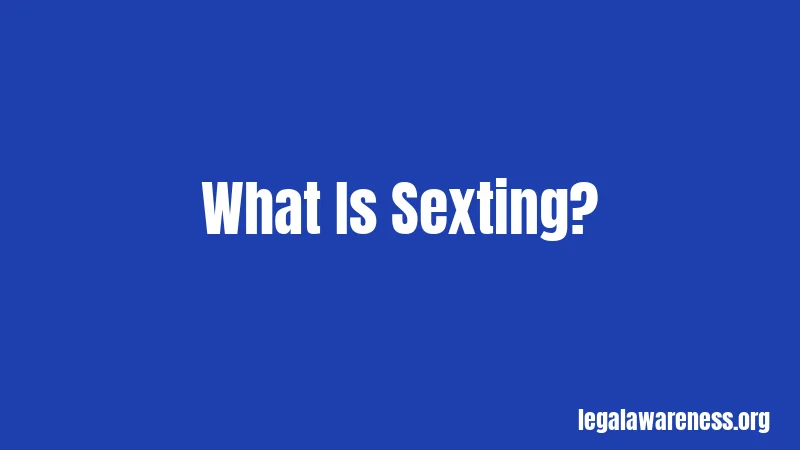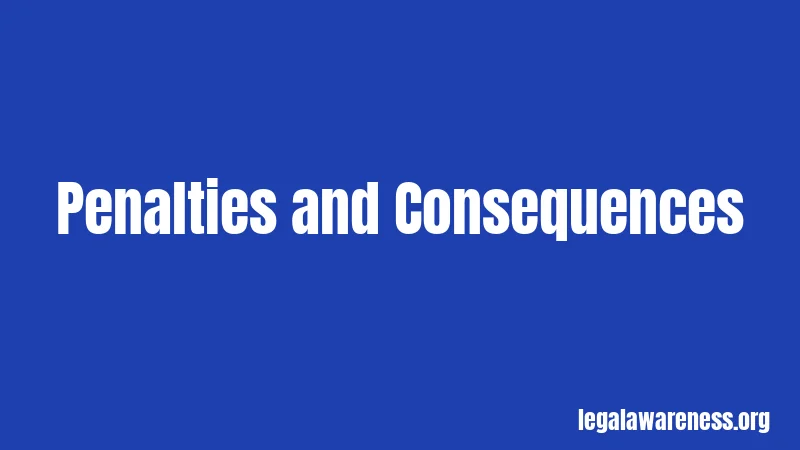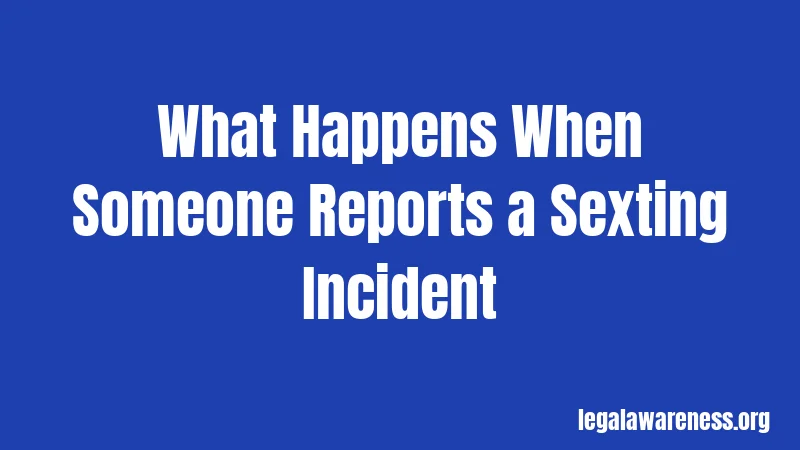California Sexting Laws (2026): What Teens and Parents Really Need to Know
Most people think sexting is just a private thing between friends. But in California, sending or possessing sexual images can actually be illegal. The laws are stricter than you might think, especially if you’re under 18.
Here’s what makes this important: California has specific laws about sexual images. They apply differently depending on your age and who’s involved. Let’s break down exactly what you need to know.
What Is Sexting?

Sexting means sending sexual or nude images through text, social media, or any digital platform. This includes photos, videos, or messages of a sexual nature.
Pretty straightforward, right? But here’s the thing: even though it feels private, these images are never really private once they’re sent. And legally, they fall under some pretty serious categories.
California’s Main Sexting Laws
Laws About Minors (Anyone Under 18)
In California, sending, receiving, or possessing sexual images of anyone under 18 is illegal. This applies even if the person sending the image is also a minor.
Wait, that means a 16-year-old sending a photo to another 16-year-old could face charges? Yep, that’s exactly right. California’s law doesn’t make exceptions for teens exchanging images with each other.
Not sure what counts as an illegal image? It’s basically any photo or video showing genitals, breasts, or any sexual act. It doesn’t have to be completely naked to be illegal either.
The Child Sexual Abuse Material (CSAM) Law
If you send, receive, or keep sexual images of anyone under 18, you could be charged with possessing or distributing child sexual abuse material. This is a serious felony charge.
Honestly, this is the part most people miss. The law doesn’t care if you took the photo yourself. It doesn’t care if you’re also a minor. Once you possess that image, you’re technically breaking the law.
Here’s where it gets interesting. Even opening an image someone sent you and then deleting it could technically count as possession. The law is pretty strict on this.
Sexting of Adults (18 and Over)
Okay, pause. Read this carefully. If you’re 18 or older, the rules are different but still important.
Sending sexual images as an adult isn’t automatically illegal in California. But there are situations where it becomes a crime. It’s illegal if you share explicit images of someone without their permission. That’s called revenge porn, and California has a specific law against it.
Also, sending sexual images can become a problem if the person receiving them didn’t agree to it. Unsolicited sexual images to someone who doesn’t want them could be considered harassment or indecent exposure.
Penalties and Consequences

For Minors Sexting Each Other
Here’s what could happen if you’re caught sexting while underage:
You might face juvenile delinquency charges. These carry potential jail time in juvenile detention. You could also face probation and fines up to $1,000.
But wait, it gets more serious. You could be required to register as a sex offender. Yes, you read that right. A sexting incident could put you on the sex offender registry as a minor.
Think of it like this: the consequences follow you for years. College applications ask about criminal history. Job applications do too. This isn’t just a legal problem; it affects your future.
For Adults Sharing Without Permission
If you’re 18 or older and share sexual images of someone without consent, you’re breaking the law. You could face misdemeanor charges with up to 6 months in jail. You might also owe up to $1,000 in fines.
If this is revenge porn (sharing images specifically to hurt someone), the penalties get worse. You could face jail time up to one year. Fines can go up to $1,000.
For Adults Distributing Images of Minors
This is the most serious charge. If you’re an adult and you send, receive, or possess sexual images of minors, you’re looking at felony charges. Prison time can be years, not months.
You’ll almost certainly have to register as a sex offender. This affects where you can live, work, and go to school for the rest of your life.
Special Circumstances in California
The “Sexting Safe Harbor” Law
Hold on, this part is actually good news. California has a rule that helps teens a little bit.
If you’re under 18 and you create a sexual image of yourself (not someone else), the prosecutor might decide not to charge you. They might offer educational alternatives instead of criminal charges.
But here’s the catch: this only applies if it’s your own body in the photo. If you’re sending or possessing images of someone else, even another minor, the safe harbor doesn’t protect you.
Also, this doesn’t automatically mean you won’t be charged. The prosecutor has to decide to use this option. It’s not guaranteed.
Images That Aren’t Considered CSAM
Not every image of a minor is automatically illegal. Some photos might show nudity but not be sexual in nature.
For example, a family photo from a baby’s bath time isn’t CSAM. Medical photos taken by doctors for legitimate reasons aren’t either. The key is whether the image is sexual or meant to be sexually arousing.
Still confused about the difference? That’s totally normal. When in doubt, don’t send it. That’s the safest approach.
Deepfakes and Edited Images
Here’s where it gets interesting. Fake sexual images (deepfakes) of real people are becoming more common. California is starting to crack down on these.
Creating or sharing fake sexual images of someone without permission can be illegal. It’s basically a newer form of revenge porn. The law is still catching up with technology, but expect stricter rules here.
What Happens When Someone Reports a Sexting Incident

School Reports
If school officials discover sexting involving students, they usually have to report it. In many cases, they’re legally required to contact law enforcement.
This means that a sexting incident at school could turn into a criminal investigation pretty quickly. Confiscating a phone and finding inappropriate images could lead to police involvement.
Parents often don’t know this until it’s too late. One day, their teen is in school. The next day, police are involved.
Police Investigations
When police get involved in a sexting case, they take it seriously. Officers will want to interview anyone involved. They’ll want to examine phones and devices.
You have the right to an attorney during questioning. Even if you think cooperating will make things better, talking to police without a lawyer present is risky. Your words can be used against you later.
This applies whether you’re the one who created the image, sent it, or received it. You need legal protection either way.
Social Media and Platform Reporting
Most social media platforms have automated systems that detect child sexual abuse material. These systems report illegal images to the National Center for Missing and Exploited Children (NCMEC).
The NCMEC then passes reports to law enforcement. So even if you think something is private on social media, it might not be. The platform could be tracking it.
How to Stay Safe: Practical Steps
If You’re Under 18
Here’s the honest truth: the safest choice is not to create, send, or keep sexual images. Period.
But you’re human, and sometimes you might feel pressure. Friends might pressure you. A romantic partner might ask. Here’s what to do: say no. Explain that it’s illegal. Most people will understand.
If someone keeps asking after you say no, that’s a red flag. Healthy relationships don’t involve pressuring someone to do something illegal or uncomfortable.
If Someone Asks You for Images
Don’t send them. Not ever. Even if they seem trustworthy. Even if you’ve known them forever. Even if they promise to delete it afterward.
Once you send an image, you don’t control what happens to it. They could forward it to others. They could threaten to share it. They could distribute it online. You’re giving up all control.
If You Already Sent or Received Images
First, don’t panic. But do take action. Delete any images you have. Don’t share them with anyone else.
Then talk to a trusted adult. A parent, counselor, or lawyer can help you figure out next steps. In some cases, talking to police about what happened can actually help your case.
If someone is threatening to share images of you, that’s extortion. Report it to the police and to the platform where it happened.
For Parents
You’re not trying to spy, but you should know what your teen is doing online. Talk openly about sexting risks. Explain the legal consequences.
Keep communication open so your teen feels comfortable telling you if something goes wrong. If you discover inappropriate images on your teen’s phone, stay calm. Getting angry might make them hide things more.
Consider consulting a lawyer before involving police. An attorney can advise you on your next steps.
Recent Changes and Updates
California keeps updating its sexting and digital laws. In recent years, there’s been more focus on revenge porn and protecting adults from non-consensual image sharing.
The laws around deepfakes and fake sexual images are also evolving. If someone creates a fake sexual image of you without permission, you may have legal recourse.
Stay informed about changes. What was legal last year might be illegal this year. Check official state resources periodically.
Frequently Asked Questions
If I’m under 18 and I send a sexual image to another minor, am I breaking the law?
Yes, you could be charged with distributing child sexual abuse material. The law doesn’t make exceptions for minors sending images to other minors. Both the sender and receiver could face charges.
Can my parents see my deleted photos?
Not automatically, but forensic tools can sometimes recover deleted files. Also, apps and cloud services might back up your photos without you realizing it. The safest approach is never to create the images in the first place.
What if someone shared my image without permission?
You can report it to the platform where it was shared. You can also file a police report. California’s revenge porn law might apply if it was done to hurt or humiliate you. Consider consulting a lawyer about your options.
Is it illegal to sext with someone who’s 18 if I’m 17?
Yes, it can be. If you’re 17 and send sexual images to an 18-year-old, they could face serious charges. The age difference doesn’t matter legally. Any sexual image of someone under 18 is problematic.
Can I get in trouble if someone sends me an unwanted sexual image?
Generally, no. If you immediately delete it and didn’t ask for it, you’re not in trouble. But report it to the platform and the person sending it. If they keep sending unwanted images, that could be harassment.
Final Thoughts
California takes sexting seriously, especially when minors are involved. The laws exist to protect young people, but they also punish young people pretty harshly.
Here’s the real talk: once something is digital, it’s never truly private. Think twice before creating, sending, or keeping sexual images. The legal consequences can seriously impact your future.
If you’re worried about something that’s already happened, talk to an adult you trust. A parent, school counselor, or lawyer can help you figure out what to do next.
Stay informed, stay safe, and remember: if you’re unsure about whether something is legal, the answer is probably no. When in doubt, don’t do it.
References
- California Penal Code Section 311.11 – Child Sexual Abuse Material
- California Department of Justice – CSAM Resources
- California Penal Code Section 647(j)(4) – Revenge Porn Law
- National Center for Missing and Exploited Children – CyberTipline
- California Legislative Information – Recent Updates on Digital Privacy
- California Courts Self-Help Center – Juvenile Delinquency
